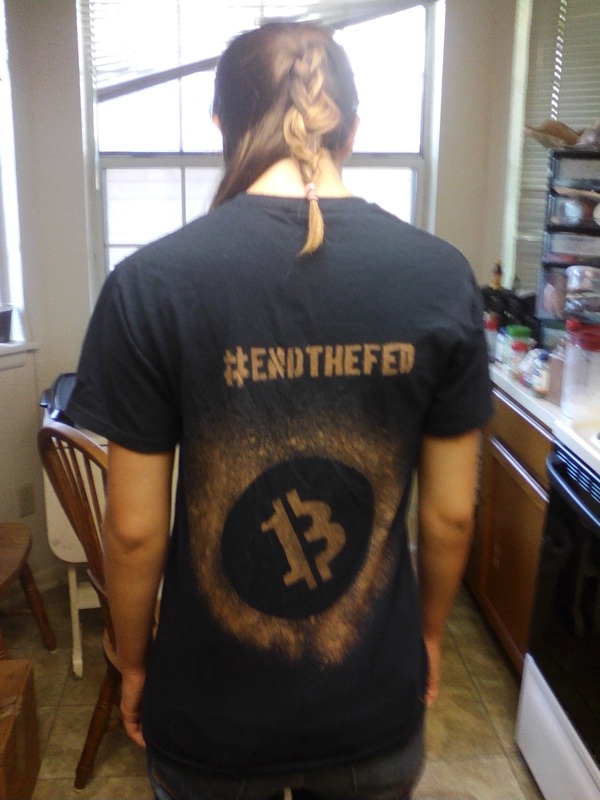How is it that the strange idea of making the law produce what it does not contain—prosperity, in a positive sense, wealth, science, religion—should ever have gained ground in the political world? The modern politicians, particularly those of the Socialist school, found their different theories upon one common hypothesis; and surely a more strange, a more presumptuous notion, could never have entered a human brain. ~Bastiat
The first order of business is to clarify my specific claim which was made last post. Some people demonstrated a desire to adapt a radical and likely unpopular claim to better jive with their own worldview or better lend itself to discussions with non-anarchists. While I am certainly sympathetic to that desire (see my posts about the Pope), this issue is foundational and, therefore, requires a certain clarity and inflexibility. My claim was not ethical, claiming that one ought to do a particular thing concerning collectives. Nor was my claim a pragmatic one, saying that things would be easier if one ignored collectives in favor of individuals.
My claim is a categorical, unequivocal ontological one. My claim is that collectives do not exist. Collectives posses the same ontology as Xenu, lizard Jews, and human-caused global warming. They are a fairy-tale. As my selected examples of fairy-tales demonstrate, though, some people do insane and violent things in the name of such fairy-tales.
I'm about to get ahead of myself. Before exploring collectives and the results of believing in them, I ought to give a definition of what exactly I mean by the term. Clearly, I'm not claiming that hippie communes, political migrations, cults, or other random gatherings of people are not a thing; these phenomena are easily observed. I am raising the question of their ontological status, though. I hope to make that distinction more clear through this post. When I say “collectives do not exist”, what I am saying is “an entity which exists distinct from and beyond the functioning of its individual components is a metaphysical impossibility”, specifically in the case of agents.
At this point, I expect scientists and pseudo-scientists to reel and accuse me of ignorance. In physics, elementary particles which exhibit certain behaviors can coalesce into a larger particle which exhibits behaviors different from the elementary ones, without an account of how the elementary particles contribute to said behavior. Quarks and protons/neutrons are a widely-known example of this phenomenon. A significant portion of my personal philosophical pursuits have revolved around philosophy of science and epistemology (probably because disillusionment with astrophysics is what drove me to philosophy), but one will notice a lack of such on this blog. This is for a variety of reasons, but if enough people express interest in my 95 Theses, that may change.
Anyway, one such reason is because scientists and science fans are trained to be openly hostile towards philosophy of science. Your reaction to this paragraph may demonstrate this. Protons and quarks are mere instruments. They are concepts which serve a function; specifically, they express regularities in mathematically mediated observations. Because this is the case, it is unnecessary to explain how quarks contribute to the behavior of protons... it may even be impossible to do so within our current paradigm. Another way of saying this would be that quarks are not “real” in the platonic sense; they are a predictor for phenomena in a similar (but more accurate) manner as Aristotle's teloi or the medieval nature spirits.
Similarly, a biologist will discuss species or evolution in an anthropomorphized or teleological manner, “racists” will discuss statistical trends across demographics in a collectivized way, and sociologists or politicians will speak of “humanity” and “society” as if it were a tangible entity. There are nuanced distinctions between these examples and the physics example as well as distinctions betwixt each other. The primary distinction is the specific relationship between the individual and the whole. Where quarks are a tool to describe regularities when looking smaller than the atom, species, races, societies, etc. are tools to describe regularities when looking at unmanageably large numbers of individual instances.
In both paradigms, one must be very aware of one's ontology. A long-standing basic principle in establishing ontology is simplicity; something akin to Occam's Razor. If one can effectively describe, explain, and predict the nature of, say, a falling object using a tool such as gravity, one need not and ought not look for a coincidental explanation such as telos or “gravity spirits”. In the case of collective identifiers such as “species” or “society”, every significant behavior is explained by the behaviors of individual actors “within” the collective.
In other words, “society” or “species” are useful instruments for biologists or economists, but are ontologically superfluous. If, someday, one can determine what “real” object correlates to quarks, quarks would also become ontologically superfluous. This claim renders two significant outcomes.
The first is one of historical and scientific significance: in the same manner that believers in river spirits or flat earth theory are (appropriately) ridiculed, if science is allowed to continue progression, believers in “society” may be faced with similar reactions. Where virgin and child sacrifices used to be offered to spirits, modern-day sacrifices of comparable magnitude are offered to “society”. Such behaviors need to stop.
The second is one of philosophical and practical significance. Obviously, such a claim secures the case I made last week. That aside, one must critically assess one's belief and rhetoric concerning “society”. For example, a materialist/scientism-ist/pragmatist is faced with a significant challenge. When faced with a choice between identifying the behaviors of material bodies behaving in deterministic ways and the emergent properties of those behaviors or believing in a metaphysical (immaterial) entity which interacts with those material bodies, determining behaviors outside the laws of physics, most often these materialists will opt for the metaphysical option. This is intellectually inconsistent and eminently damaging to the case for materialism.
Materialism aside, people at large seem to consistently believe that “society” possesses attributes contrary to the attributes of its constituent elements. I often argue against such a claim when it emerges in the context of voting and law enforcement. For example, if individuals lack the right to dictate the actions of others (forcing gays to act straight, forcing nuns to buy other people contraceptives, shooting people for driving the wrong car), how can they delegate that right (which doesn't exist) to a representative, enforcer, or “society”?
The rhetoric concerning “society” oscillates between using “society” as a tool to accomplish personal goals (this is at the heart of electoral debates) and treating “society” as a force of nature to be mitigated and resisted (when one is on the receiving-end of “society” used as a tool). One must look no further than the “anti-war” movements on the right and left only being “anti-war” when the opposing team is in charge of the war.
This accusation goes beyond “society” and applies categorically. “Race” is a useful instrument for identifying genetic similarities amongst individuals and statistically analyzing unmanageably large populations. However, “race” possesses the same ontology as “species” or “society”; it exists as an epistemic tool, nothing more. Even when dealing with teams, gangs, or communities, (that is, associations of choice) one is merely dealing with individuals who may have common goals or proclivities. Such a community lacks ontology distinct from its constituent elements. If there are no individuals called “crips” there is not gang called “the crips”; if there are no police, there is no gang called “the police”. Additionally, with the possible exception of the Borg (TNG only, Voyager kinda' goofed it) one cannot interact with the collective, only constituent elements of the collective. I will renounce my strong position on the non-existence of collectives if someone will allow me to speak to and shake hand with “society”.
This position, despite what you may think, does not disallow the existence of “communities”. With a very minor degree of re-definition, community can remain. If, by “community”, one means “a collection of strong and interconnected interpersonal relationships”, communities exist everywhere. One needs only be cautious to not assign metaphysical or moral properties it communities which are not appropriate.
My more religious friends may appeal to panentheism or the Body of Christ/Communion of Saints as a counter-argument. This argument doesn't actually reject either concept; instead, it opens the door for a discussion concerning the nature of such metaphysical concepts and their relationship to the material world. To begin this discussion, I will suggest that such concepts operate primarily as eschatological phenomena and secondarily as an ethical heuristic.
One final note, as I am out of time: this is why such issues are self-defense, the tragedy of enforcement, and the state of war are so morally involved on this blog. Even though the police are such by virtue of a voluntary association centered on the pursuit of criminal activity, I do not believe asymmetric warfare against police as a whole is morally justified, but defending oneself from instances of extortion, kidnapping, coercion, and murder with lethal force is morally justified and ethically encouraged.
TL;DR: Last post, I was not claiming that one should merely behave as if collectives do not exist, but instead making the strong claim that the do not exist at all. Belief in collectives is ontologically and epistemically lazy and such laziness prevents the epistemic rectitude required for ethical action. Increased intellectual rigor with regards to “society” is required if one wishes to improve one's quality of life or the quality of life of others.
















 RSS Feed
RSS Feed
